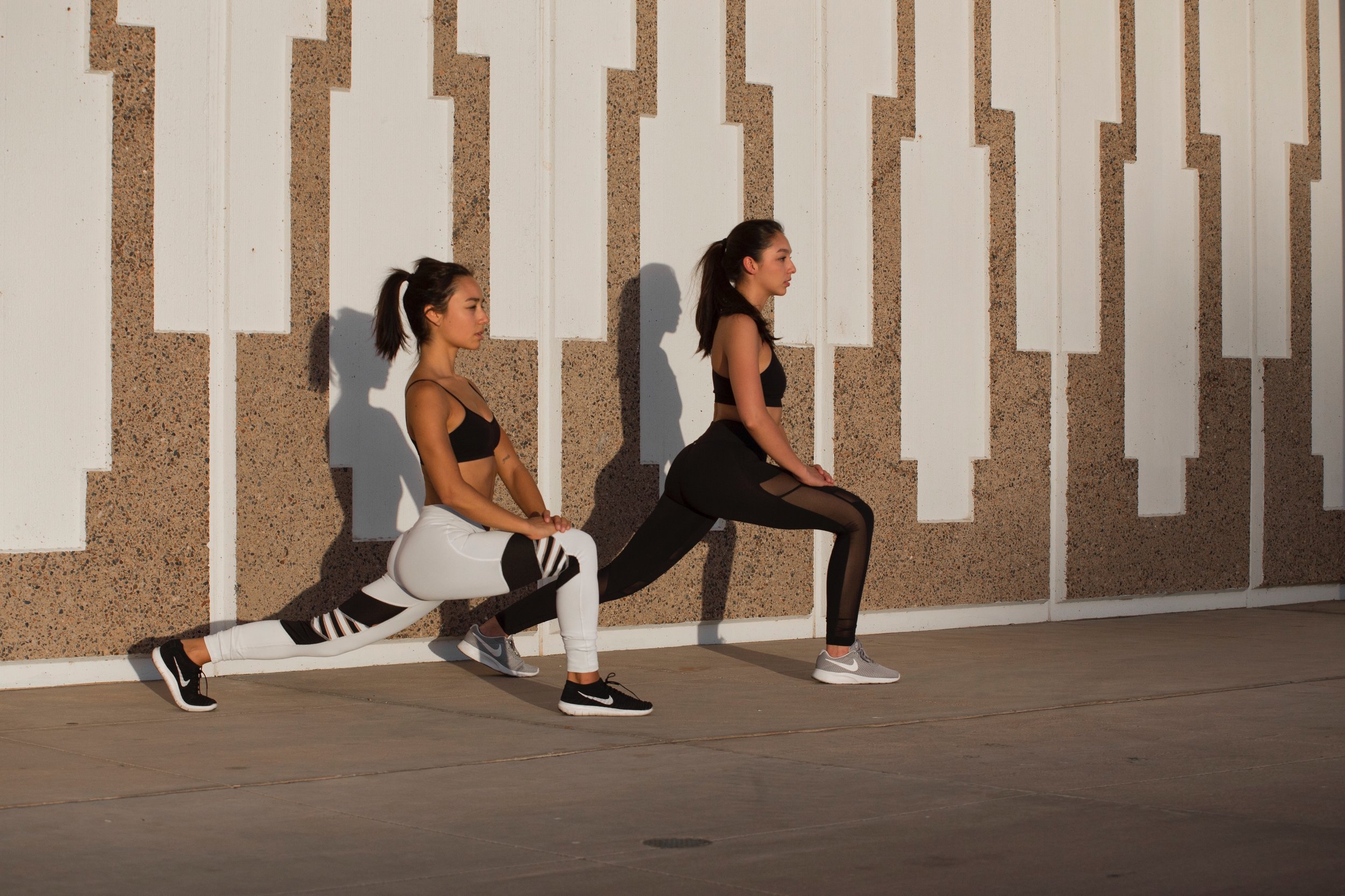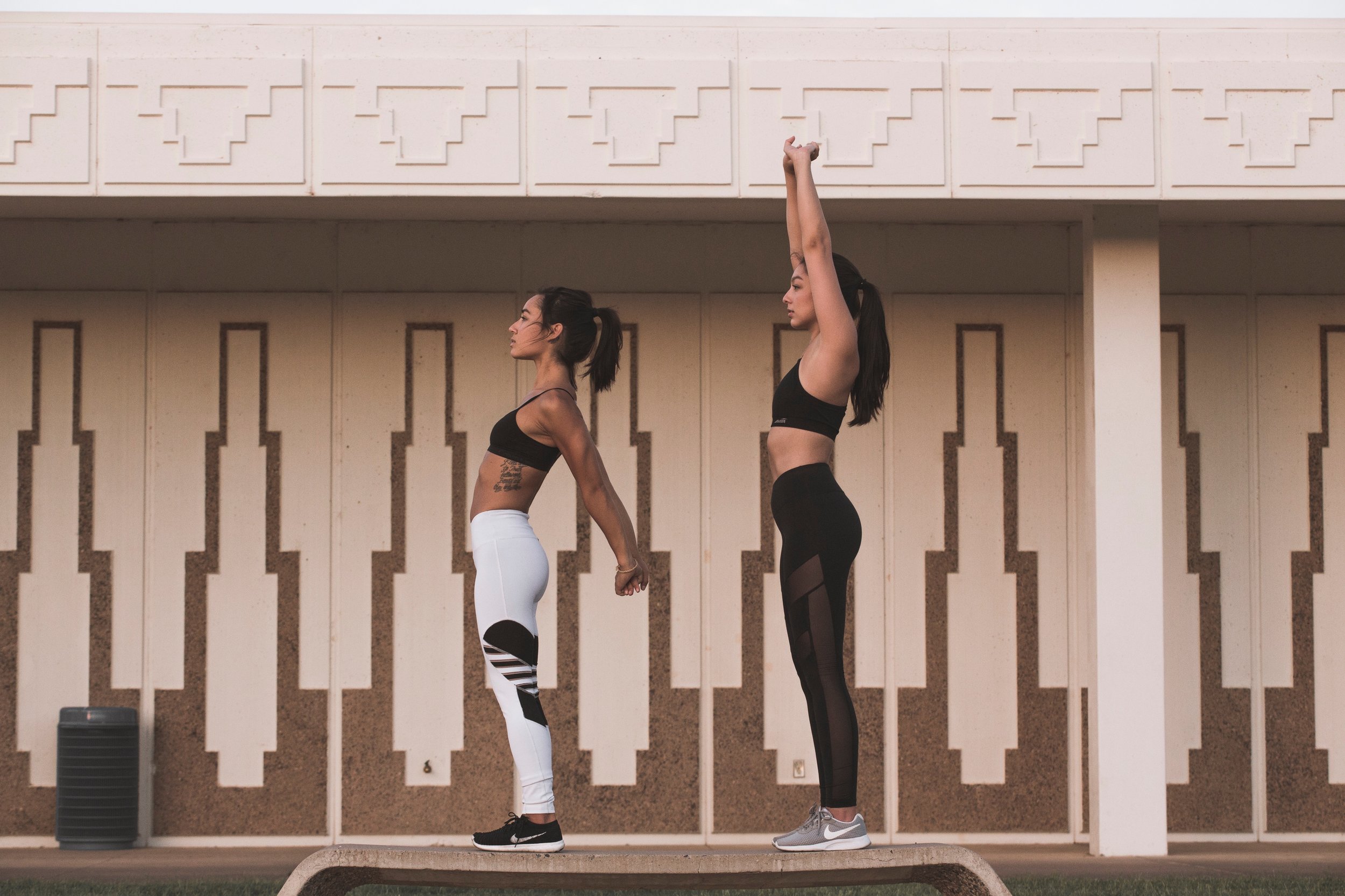Fighting Addiction with Food & Fitness
Foods, movement, and a healthy routine can play a major role in substance abuse recovery. To find out more, read this.
Image by Chelsey Luger.
CONTRIBUTOR POST
This blog post is a guest contribution by Constance Ray. Find more of her work at recoverywell.org . If you have an idea for the WELL FOR CULTURE blog, please send it to info@wellforculture.com
Health, Wellness and the Road to Recovery
The United States is in the midst of an epidemic. Drug and alcohol abuse takes the lives of thousands of people every day and is especially prevalent among Native peoples and other communities who often lack access or do not respond well to conventional behavioral health services. If you are in recovery for substance abuse dependency, keep reading on how physical fitness along with diet, exercise and a focus on your mental health can help.
Recovery and wellness go hand-in-hand
According to the Substance Abuse and Mental Health Services Administration Center for Mental Health Services, every aspect of your life affects your physical and mental health. This is especially true when you’re recovering from a traumatic or stressful event, including alcohol and drug addiction. Your successful rehabilitation is dependent upon your everyday actions. The food you eat, the hours you keep and the activities you do all play a part in helping you continue sustain a sober way of life.
No matter how much damage you’ve done to your body, there are a number of healthy habits that can help you maintain your sobriety and even add a few years to your life. The New York Times recently underscored the importance of eating well, getting regular physical activity, quitting smoking, maintaining a healthy weight and eliminating heavy alcohol consumption.
Physical activities such as walking and weight training can help keep your body strong, which will give you the power to overcome cravings. But it’s not just enough to workout for the sake of working out. If you want to enjoy a successful fitness routine, it has to be sustainable. In other words, your workout should be something you enjoy and look forward to. You can find an enjoyable workout by trying many different activities. Walking is perhaps the easiest while group dance classes combine cardiovascular exercise with social opportunities. Whatever you choose to do, make sure it’s consistent in order to get the best results for both your physical and mental health and your recovery efforts.
Your nutritional intake is directly related to how you feel; eating the wrong kinds of foods can make your body feel weak, which can lead to giving into cravings. Commit to eating a healthy breakfast, which consists of whole grains, dairy, fruits, vegetables and healthy fats each morning. Pack a lunch every day so you’ll avoid the temptation to eat greasy fast food, which can make you feel sluggish and tired. Watching what you eat can also help you maintain – or achieved – a healthy weight.
Obviously, if you’re in alcohol addiction recovery, you’ll need to be able to manage your desires to drink. Overcoming these yearnings may be easier when you realize the short and long-term benefits of leaving liquor behind. When you stop drinking, you lower your risk of developing certain types of cancer, specifically those that affect the liver. You’ll also significantly lower your chances of experiencing liver cirrhosis, heart disease, sexual dysfunction and mouth cancer. Once you’ve learned to overcome your dependency on drugs and alcohol, you will not only feel better, but your hair and skin will look better, which may give you a self-esteem boost.
A Healthy Routine
You already know that diet and exercise play a part in your recovery, but so does your daily routine. A healthy schedule consists of getting seven to nine hours of sleep each night. Follow your slumber with 30 minutes of cardiovascular activity and a healthy breakfast. Social activity is also important as having a strong network of friends and family who will bolster your recovery efforts. Don’t forget to make time for yourself such as spending up to 15 minutes each day to meditate, writing in a journal, or simply winding down after a long day at work. These quiet times will go a long way toward helping you maintain a healthy lifestyle.
Simply wanting to maintain your sobriety is not enough. Instead, you must work toward that goal every hour of every day. Part of your recovery efforts should center on maintaining a healthy routine, so that you’ll be less tempted to relapse and more likely to be successful.
How to Power Through the First Trimester
#WellForBaby / HOW TO POWER THROUGH THE FIRST TRIMESTER. Just because a woman isn’t “SHOWING” doesn’t mean she’s not FEELING her pregnancy!
Staying active while pregnant is not always easy. Put in the effort to move gently, but don't push yourself too hard. | Photo by Thosh Collins.
The first trimester of pregnancy can be so brutal. Here’s what it's like:
- NAUSEA - The first trimester brings on a whole range of morning (all-day) sickness. It’s different for everyone. The spectrum goes from a one (nonexistent) all the way to a ten (needing to be hospitalized.) It can last the entire pregnancy, but for many, it’s gone after a few weeks. But ohhhh those are some long weeks. This is the one time in life that I would honestly recommend most food restrictions go out the window: you’ve got to eat whatever you can keep down, and it might not be nutritionally ideal. STILL try your best to stay away from fast food and junk food, but don’t feel too bad if you break some rules. While many think of the entire pregnancy as a craving-fest, that’s actually not the case. I was actually wishing for cravings during that time, because the majority of foods sounded disgusting to me. My diet consisted of anything sour, plain, and cold, like green apples, ice, lemonade, grapes, and greek yogurt. I also recall being okay with salty crackers and chips. I could not STAND the smell of cooking meat or vegetables, (much less eat any of that), which is terrible because I knew I was missing out on a lot of nutrients. In any case, the cravings will eventually come (in all likelihood), but at first, not necessarily.
- NO BUMP - I couldn’t believe how long it took for me to get a bump. I didn’t realize that most people will not have a visible pregnancy belly until about halfway through the second trimester. It’s actually frustrating to be feeling all sorts of pregnancy symptoms but not seeing any sign of it. And without others knowing that you're pregnant, you're obviously not going to experience the same level of sympathy or understanding that people might offer you if they were aware (like people letting you cut them in line at the grocery store, or offering to carry things for you , etc). I was so happy and relieved when my belly finally started to grow, and it didn’t happen until way after first trimester was over.
- SECRECY - Many people choose to weight many weeks or months into the pregnancy to share the news with friends and family. It is really hard to keep in such an exciting announcement - especially with a first baby. But, the wait is worth it, because it definitely makes it more fun once the sharing finally begins.
- CONFUSION - I was so confused about healthcare when I first realized I was pregnant. I didn’t know which doctor I wanted to go to (or the fact that I would eventually switch to a midwife and birthing center), I had some bad experiences at clinics with doctors I didn’t like, and I felt stressed out about figuring out where I would deliver the baby and all the other logistics that go with it. It’s a part of the process that just has to be done, and if you’re a first-time mom, don’t worry, you’ll figure it out and you’ll be much more prepared the next time around.
- FATIGUE - I felt like a lazy couch potato for much of my first trimester. SometimesI found the energy to push myself to move, get work done, and work out, but most of the time I just wanted to sleep and watch movies because even my mind was tired. Don’t worry - eventually, you will have an amazing spike in energy and you will be more than ready for baby to show up.



HOW TO POWER THROUGH IT
Now that I’ve been through it, here’s the advice I would give my sleepy, nauseous, confused first-trimester self:
- BE PATIENT - It gets better. You can handle a few weeks of what is arguably the most challenging part of the pregnancy.
- PRACTICE GRATITUDE - The first trimester is exciting, but it;s also the most emotionally uneasy part of the pregnancy because the pregnancy is in its delicate early stage, still considered high risk. Be grateful for that nausea or other uncomfortable symptoms that you experience every day, because it means that your body is adjusting and learning to carry a life within — a gift that should not be taken for granted.
- TAKE IT EASY - I remember feeling like I wasn’t working out enough, or like I should push myself harder. The reality is that it actually becomes easier to workout when the nausea subsides later on in second and third trimester, and you’ll have plenty of time to exercise then, so just rest and relax or stick with gentle movements like stretching or walking in trimester 1 if that’s all you feel like doing.
- READ AND STUDY - First trimester is the perfect time to start picking up books, reading articles, and getting to know all about the process of pregnancy and childbirth so that you can prepare yourself for what’s to come. Don’t forget to seek multiple opinions and sources on all topics. There is a lot of really outdated information still being circulated, and there are many different approaches to healthcare and wellness during this time, so be sure that you dig deep to find sources that you truly connect with.
- BE PROUD OF YOURSELF - It takes a lot of work to grow a tiny human, and you are doing a wonderful thing.
Taking a walk while traveling for working during first trimester. Photo by Thosh Collins.




